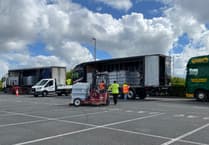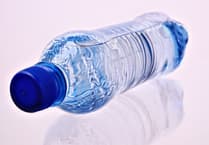FLAX grower, Vicky Putler is bringing the flax industry back to the Tamar Valley, writes Kat Archer.
Flax is a flowering plant grown for its seeds which are high in protein and fibre, its oil, and also its fibres which are used to make linen and fabric.
Flax used to be a popular plant grown across the UK and was grown around Tavistock on Dartmoor but by the late 1800s it was beginning to die out. Flax growing was revived during WW2 for its strong fibres, but after the war flax was no longer grown in the UK due to cheaper imports that the industry couldn’t compete with.
Vicky Putler, a textile printer who owns the fabric business Thorody, started ‘The Flax Project’ after she ‘couldn’t get any linen that was grown in this country.’
‘The Flax Project’ is a social enterprise project set up by Vicky to bring commercial flax growing back to the South West that is farmed in an environmentally responsible way. The project is based in Lower Metherell and is located at a farm managed by Tamar Grow Local.
In 2021, Vicky successfully grew an acre of flax and this year has grown two acres.
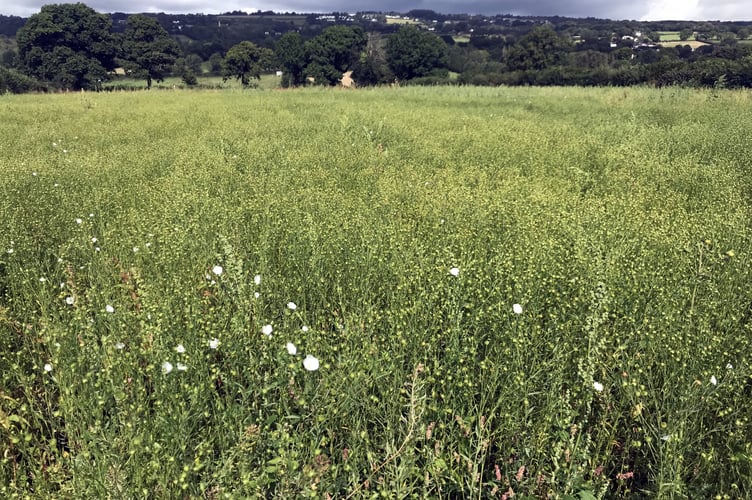
Flax is normally sewn in April when the soils are warm enough and harvested at the end of August or beginning of September. Flax is a unique plant as every part of the plant can be used. Flax is also easy to grow. ‘It’s one of the least demanding crops, Vicky said. ‘It doesn’t get many pests or diseases and it doesn’t need watering.’ Flax, however, is quite particular as you have to pull it up by hand. During harvest time, Vicky relies on volunteers to help with the harvest and although the plant requires processing by hand and is time-consuming, Vicky enjoys the slow rhythm of the processes and so do the volunteers.
Vicky said: ‘Every bit of the process is quite pleasurable.
‘It is a different kind of experience. A very enjoyable experience.’
Processing the flax involves actions such as bashing and combing, with the end product being a hair-like fibre. The flax can be processed repeatedly to get all the fibre out.
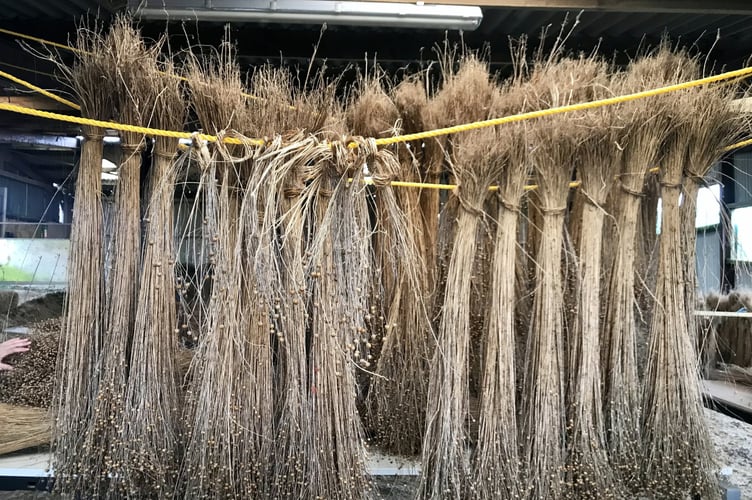
Aside from the numerous uses of the plant, the plant also offers environmental benefits. ‘It’s a crop you can grow organically. It’s also a good carbon sink’, Vicky said.
‘It’s such an amazing plant environmentally. It’s a new industry that can be started from scratch and done greenly.’
The experimental project aims to get a decent fibre from the harvest to allow some cloth to eventually be produced.
Alongside flax growing, Vicky has also been providing workshops in Plymouth through ‘The Flax Project’ which have involved supporting communities through the entire process from seed to harvest. Aside from the flax processing, Vicky conducts heritage and folk craft teaching with a popular activity being making corn dollies. These workshops have taken place at The Village Hub in Stoke and Keyham Green Places.
‘There’s a lot to it and it’s just nice to share it’, said Vicky.
Not only do the workshops educate communities about flax and sustainable growing, the workshops also provide financial support for ‘The Flax Project’.
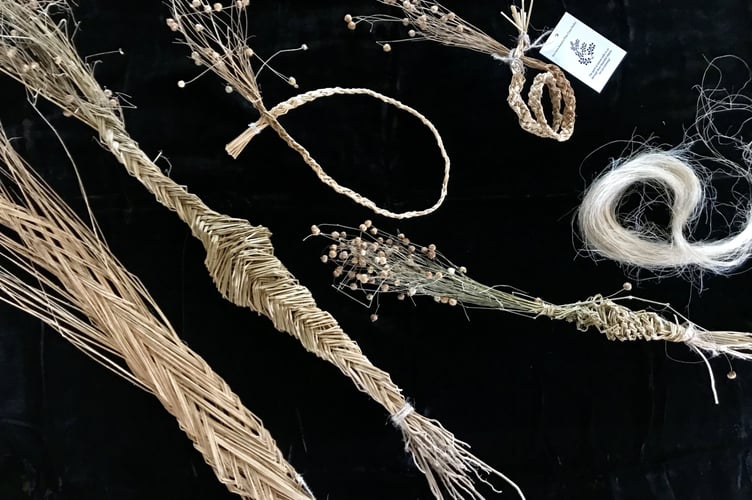
Vicky has plans to carry out similar workshops in the Tamar Valley and has hopes to run something at Cotehele in the future. Next year there are also plans to install a portacabin at the fields in Lower Metherell which will provide amenities and the possibility of running workshops on-site.
The project is in the process of becoming a community interest company (CIC) with the hopes of developing a ‘grow, process, spin, weave and sell’ social enterprise that will involve local farmers and creative enterprises in Cornwall and Plymouth providing employment opportunities and training.
‘The Flax Project leads itself to ‘small production and small farming...that’s the future’, said Vicky.
This flax revival experiment is restoring a historical industry to its former glory, but with a modern twist that focuses on sustainability. For more information visit: www.flaxproject.uk


